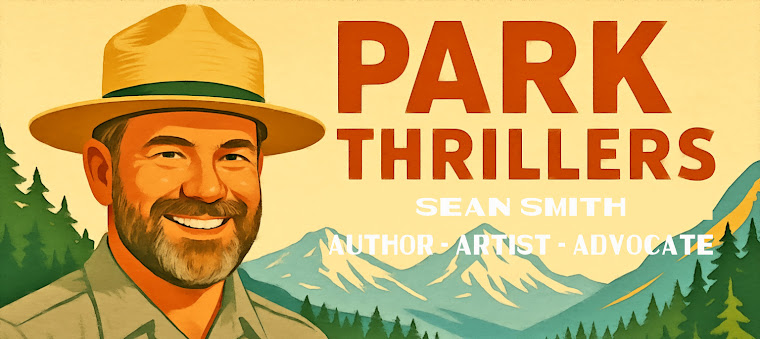 |
| Male Lion |
African National Parks share many similarities with their American counterparts.
They are big. Serengeti for example is more than 3.7 million acres or roughly 1.5 times the size of Yellowstone. Put another way, Serengeti is as large as the state of Connecticut.
The parks are well visited. Despite having to travel over poorly maintained dirt roads, parks like the Serengeti and Ngorongoro see roughly 1 million tourists annually.
 |
| Olduvai Gorge |
Yet, the Tanzanian Park Service diverges from the National Park Service (NPS) on many issues. An approach, in my opinion that the NPS should copy.
Conservation over Recreation
 |
| Guided tours allow close but low impact interaction with park wildlife. |
Yet, despite this focus on guided rather than private access, park visitor's report high satisfaction with their safaris.
Here in the US, the National Park Service mistakenly promotes the idea that they have a dual mandate. A mandate that requires them to balance conservation with recreation. This is incorrect and the courts have consistently ruled that when their is a conflict between conservation and recreation, the law requires the Park Service to favor conservation. The Park Service's continued pushing of the conservation vs. recreation myth creates undue management headaches as every recreation interest from snowmobiles to off-lease dog walkers demand access to the national parks. As a result, the National Parks are compromised by questionable activities that in many instances do not require a national park setting to enjoy.
Africa takes conservation crimes seriously
Tanzanian Park Rangers and their African counterparts take environmental crimes seriously. During our trip, I asked our guide if our truck broke down how would we contact the rangers for help. The guide responded, we wouldn't. The rangers job was to patrol the borders looking for poachers. This focus on poaching was recently rewarded when Tanzanian police arrested Feisal Mohammed Ali, the world's most wanted ivory trafficker. Meanwhile, rangers in South Africa shot and killed suspected rhino poachers. While I'm not advocating for the summary execution of park criminals, the US federal government could do more to increase the understanding of the severity of environmental crimes. However, its handling of the Cliven Bundy standoff and the courts unwillingness to impose stiff penalties on poaching sends the message that resources crimes are no big deal.
Focus on experience
 |
| One of the better Serengeti park roads |
America's National Parks will celebrate its 100 birthday in 2016. During the year, its expected the Park Service will seek public comment on how best to insure it reaches its bi-centennial. The National Park Service should look to Africa for guidance.
Sean Smith is a former Yellowstone Ranger, and an award winning conservationist, TEDx speaker, and author. He writes national park thrillers from his home in the shadow of Mount Rainier National Park. To learn more about his conservation work and novels, follow him on twitter: @parkthrillers

This is a true statement. What Americans will learn from African Land Managers are mostly challenges. Challenges of how to balance human expectations regarding resource use, protection against illegal activities, role in local and regional development, government expectations in revenue generation, etc.
ReplyDeleteThis comment has been removed by a blog administrator.
ReplyDelete